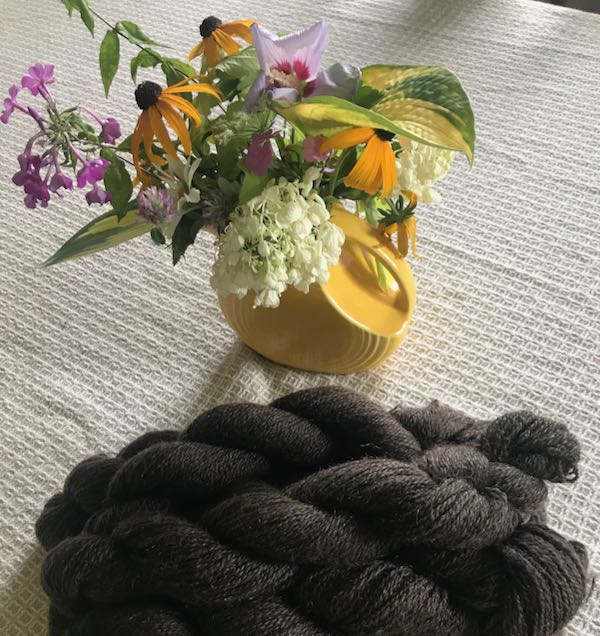Gathering Unto the Dark
You haven’t seen funny until you’ve spied a squirrel atop your fence, both jowls swollen with fat green chestnuts. A double-header, if ever there was one. He was very pleased with himself as he charged forth to lay them up in his den for the coming dark.
I find myself entering “gathering” mode, too — yarn for knitting projects, leaves raked, a list of books to read by the fire and the firewood to make those fires.
I don’t know a soul who isn’t dreading the dark this year – as the virus returns in force, the options for Thanksgivings with the usual 40 family members have vanished — Halloween, already a sad, sorry victim of the times in the rearview mirror.
Add to this, the uncertainties of political life – a lack of resolution that threatens to last until January.
St. John of the Cross, a 16th century Spanish mystic and friend of Teresa of Avila is one of our best guides on the spiritual dark that our own world seems to represent these days. John’s dark night is the state of isolation in which it seems as if God has totally abandoned us. Our meditation produces no fruitful insights, life feels weighted beyond endurance with disappointment, dread, and loss. We have even lost touch with our selves.
Our defense against the fear of such dark is to choose like the squirrel – whatever sure bets will enable us to at least survive. We all do this. We reach for the materialistic and the trivial — “feel good” treats, escapes from our own sense of imprisonment or unreality. Or we become addicted to information, activity, new physical challenges, or new achievements.
In a like way, we also gather and nurse attitudes and positions that serve our chosen narratives — relentlessly chipper for some, tales of privation and victimhood for others. We have seen so much of this in the political landscape of the past four years, it hardly stops us anymore. It has become a trope. We may not have seen how it has affected us as well.
As we prepare for a long season of cold and dark, are we gathering dread, a new storyline of fractures and alienation? Are we hording these toxins as a defense against our uncertainties and sadness and feelings of powerlessness?
If we are, we aren’t alone.
The problem is that in doing this, we are mistaking our inner tape loops for reality.
There is another option, one that came to me on Election Day, when I found myself behind a family who’d just voted and was on its way home.
They were four: a handsome man in his late 20s, the son. The mother, huddled and hooded in her winter coat against the cold. The father, equally frail in his jacket. And a fourth: their other son.
This tall, gangly young man wore a purple running outfit and no hat. His father braced him as he walked on wobbly legs, his torso stiff, his vacant eyes staring straight ahead, without any apparent awareness of where he was, or the import of that walk, nor even that the man beside him, his father, was holding him up and guiding him home.
Their vulnerability was so raw and apparent, as they moved very slowly down the street and up the hill, that it stopped all my inner chatter. I became completely riveted on this family. Certainly, this was not an outing that they took often, and likely only took in this way because it was so important to them to cast their votes. Likely, the disabled son could not be left alone.
They reminded me that there is so much that we are asked to gather in, and hold fast in the darkness, that we don’t choose. There is so much in life that isn’t about us. My experience of families who must make a place for a disabled loved one is they have learned this lesson every day of their lives. They are softer and more prone to tenderness, far more aware of their dependence on the kindness of others. For those who are under no illusion that they can choose everything that they must carry into the cold and dark, political differences will always yield to spiritual realities — the bedrock truths of kindness and hope, and the power of these to transform dark into light.
Those things which we must bring with us into the dark because we have no choice are often the greatest gifts. They illuminate as nothing else can the importance of what we CAN choose.
When the patient is ill or dying, we gather stories of care and creative civility, of healing and new life in the distant spring; whatever metaphors we can find for the ongoing life of hope.
We gather the equivalent of green chestnuts, or our frost-tattered dahlias. We dig them up and dust off their root balls, and keep them safe in the dark, knowing that when the sun tilts towards spring, they will faitihfully bloom in the compost of our leaf-enriched soil. We can choose to do this.
Namaste.





No Comments